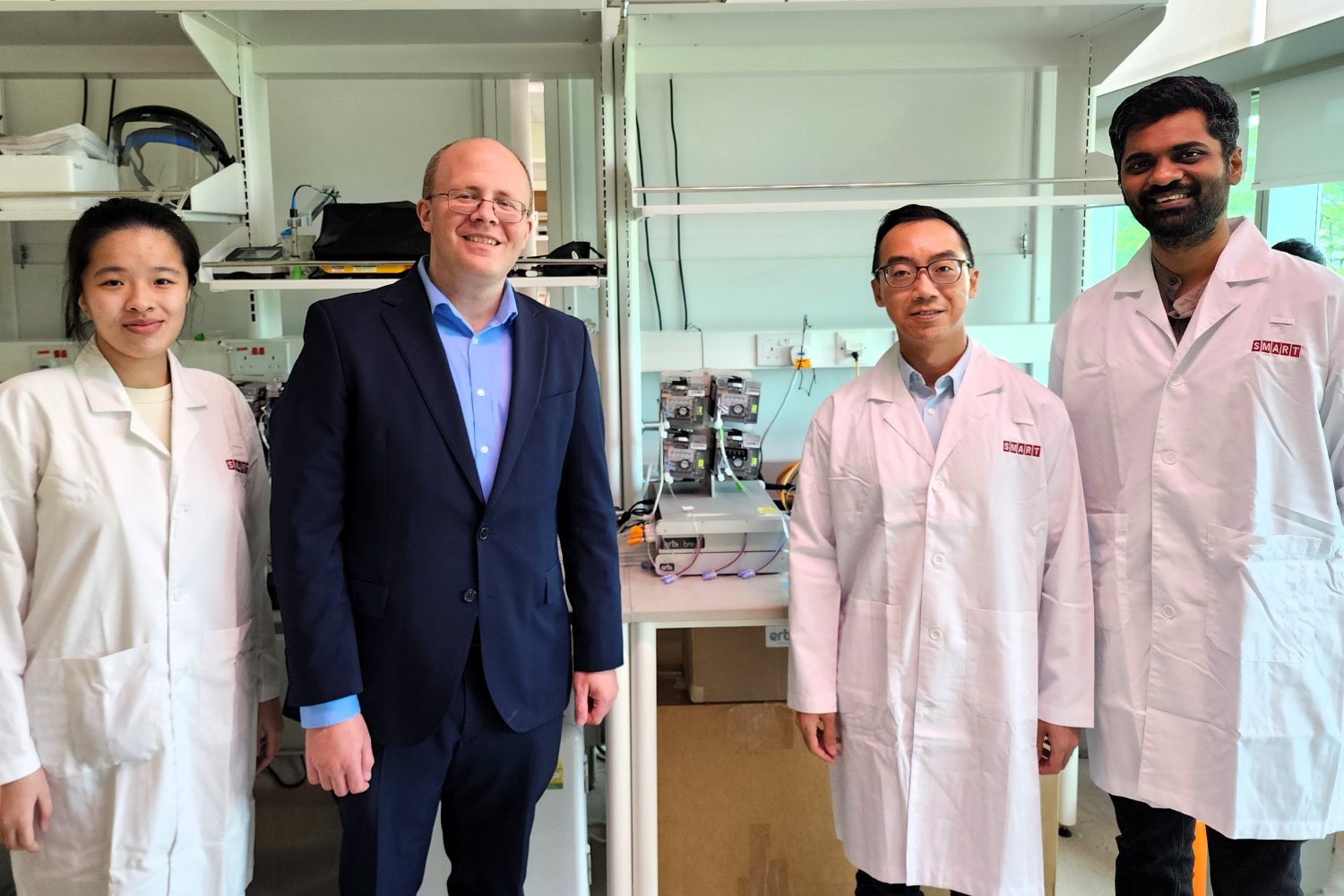Groundbreaking research from the Singapore-MIT Alliance for Research and Technology (SMART) has led to the development of an innovative approach to produce clinical doses of viable autologous chimeric antigen receptor (CAR) T-cells using an ultra-compact automated closed-system microfluidic chip—about the size of a standard deck of cards.
This pioneering method marks the first use of a microbioreactor to generate autologous cell therapy products. Specifically, researchers successfully manufactured and expanded CAR-T cells, demonstrating efficacy comparable to cells produced through traditional systems, but with a significantly smaller spatial footprint, reduced seeding cell numbers, and lower requirements for cell manufacturing reagents. This advancement could pave the way for more efficient, affordable scaling of autologous cell therapy production, potentially even facilitating point-of-care manufacturing of CAR T-cells in settings like hospitals and clinics.
The process of manufacturing CAR T-cell therapy involves isolating, activating, genetically modifying, and expanding a patient’s own T-cells before reinfusing them to combat cancer. While cell therapies have revolutionized cancer treatment—some patients remaining in remission for over a decade—the current manufacturing timelines are lengthy, costly, and inconsistent. These processes can suffer from contamination risks, human error, and a reliance on impractical seeding cell numbers, creating bottlenecks that limit therapy accessibility and affordability.
In their paper titled “A high-density microbioreactor process designed for automated point-of-care manufacturing of CAR T cells,” published in Nature Biomedical Engineering, SMART researchers outlined their breakthrough. The automated closed-system microfluidic chip can activate, transduce, and expand human T-cells to produce more than 60 million CAR T-cells from lymphoma patients and over 200 million from healthy donors. The resulting CAR T-cells maintain effectiveness comparable to those manufactured via conventional methods, yet require minimal resources and operational space, translating to lower production costs and potential savings for patients.
Leading this transformative research are members of the Critical Analytics for Manufacturing Personalized-Medicine (CAMP) interdisciplinary group at SMART, collaborating with experts from institutions such as the Duke-NUS Medical School and Singapore General Hospital.
“This advancement in cell therapy production has the potential to create a point-of-care platform, significantly increasing CAR T-cell production capacity while reducing both wait times and costs—making these life-saving treatments more accessible,” noted Michael Birnbaum, co-lead principal investigator at SMART CAMP, and associate professor of biological engineering at MIT.
With rapid T-cell expansion rates, the microbioreactor achieves comparable total T-cell numbers in just seven to eight days compared to 12 days using gas-permeable culture plates—a time savings of 30-40%. Both production methods yield CAR T-cells with similar quality, with equal functionality in targeting leukemia cells during tests in murine models.
“This new approach underscores the feasibility of dramatically miniaturizing current autologous cell therapy production, laying the groundwork for point-of-care CAR T-cell manufacturing and decreasing the footprint for good manufacturing practices (GMP)—a key factor influencing production costs,” explained Wei-Xiang Sin, research scientist at SMART CAMP and the paper’s first author.
The microbioreactor utilized in this research operates on a perfusion-based, automated system that boasts the smallest dose footprint, lowest culture volume, minimal starting cell count, and highest attainable cell density. Originally developed at MIT and advanced to commercial viability by Millipore Sigma, these microbioreactors have previously only supported microbial and mammalian cell cultures.
The reduced seeding cell numbers required for this new method imply significant savings in terms of the activation reagents and lentiviral vectors needed per production cycle, as well as cutting down the medium volume needed by at least tenfold compared to larger automated systems. This is particularly advantageous for pediatric patients who often face limitations in T-cell availability for CAR T-cell treatments.
Looking ahead, researchers at SMART CAMP are focused on refining sampling and analytical systems surrounding the microbioreactor, aiming to facilitate CAR-T production with less labor outside laboratory environments, thus enabling decentralized bedside manufacturing. Further optimization of process parameters and culture conditions is also on the agenda to enhance cell yield and quality for clinical applications.
This transformative research was supported by the National Research Foundation Singapore under its Campus for Research Excellence and Technological Enterprise (CREATE) program.
Photo credit & article inspired by: Massachusetts Institute of Technology



